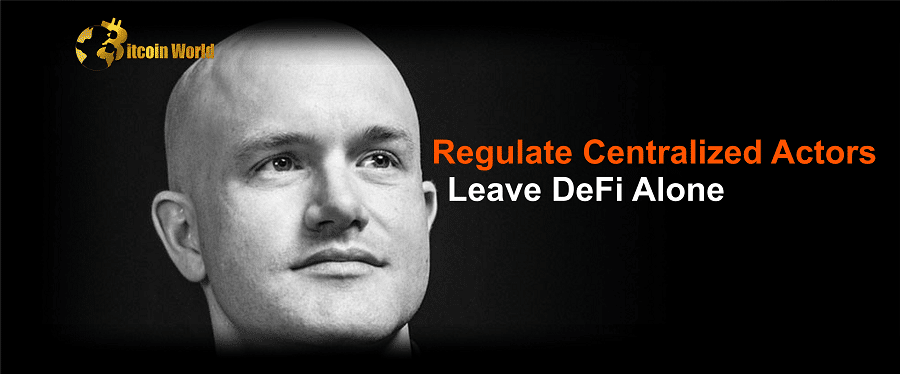Armstrong said that regulators should pay the most attention to centralised exchanges and custodians because they are the most likely to hurt consumers.
Coinbase CEO Brian Armstrong has pushed for stricter rules on centralised crypto actors, but he says that open-source code and smart contracts are “the ultimate form of disclosure” and that decentralised protocols should be allowed to grow.
Armstrong talked about how cryptocurrencies should be regulated in a Coinbase blog post on December 20. In the post, he suggested ways for regulators to help “restore trust” and move the industry forward as the market continues to recover from the damage caused by FTX and its sudden collapse.
But the CEO of Coinbase stressed that decentralised protocols are not a part of this equation.
Armstrong said, “In decentralised arrangements, there are no middlemen, and open-source code and smart contracts are “the ultimate form of disclosure.” He also said that on-chain, “transparency is built in by default” in a “cryptographically provable way,” so it’s best to leave it alone.
The CEO of Coinbase said that “additional transparency and disclosure” checks are needed for centralised actors because they involve people. Armstrong hopes that FTX’s fall “will be the push we need to finally get new laws passed.”
“We’ve seen the most risk of harm to consumers at exchanges, custodians, and stablecoin issuers,” he said. “Most people agree that regulation should be done.”
Armstrong said that the U.S. should start with stablecoin regulation based on standard financial services laws. He suggested that regulators make sure a state trust charter or an OCC national trust charter is put into place.
At the moment, U.S. Senator Bill Hagerty has introduced the Stablecoin Transparency Act, which is expected to pass in the Senate in the coming months.
Armstrong also said that stablecoin issuers shouldn’t have to be banks unless they want fractional reserves or to invest in riskier assets. However, issuers should still have to meet “basic cybersecurity standards” and set up a blacklisting procedure to meet sanction requirements.
Armstrong says that once stablecoins are regulated, regulators should focus on cryptocurrency exchanges and custodians.
The CEO of Coinbase said that regulators should set up a federal licencing and registration system to make it legal for exchanges or custodians to serve people in that market. They should also strengthen rules to protect consumers and make it illegal to try to manipulate the market.
Armstrong said that the courts are still trying to figure out what commodities and securities are. He suggested that the U.S. Congress should require the U.S. Commodities Futures Trading Commission (CFTC) and the Securities Exchange Commission (SEC) to classify each of the top 100 cryptocurrencies by market cap as either securities or commodities.
“If asset issuers disagree with the analysis, the courts can settle the edge cases, but this would be an important labelled data set for the rest of the industry to follow, as millions of crypto assets will be created in the end,” he said.














